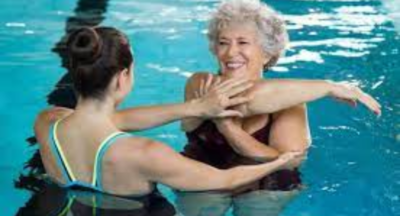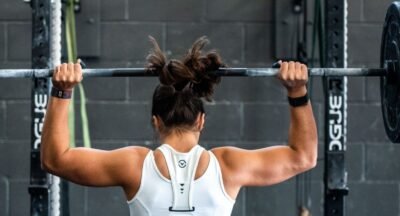
Hydrotherapy Exercise: Exploring Progressive Muscle Hydrotherapy
Introduction
Hydrotherapy exercise is a therapeutic approach that utilizes water to promote physical and mental well-being. It has been used for centuries to treat various conditions and improve overall health. One specific type of hydrotherapy exercise is Progressive Muscle Hydrotherapy (PMH), which focuses on the progressive relaxation of muscles in water. In this article, we will delve into the concept of PMH, its benefits, and how it can be used to address stress and insomnia.
Understanding Progressive Muscle Hydrotherapy
Progressive Muscle Hydrotherapy is a technique that involves the systematic contraction and relaxation of muscles in warm water. It was developed as an extension of the Progressive Muscle Relaxation (PMR) technique, which is typically performed on land. The warm water environment of hydrotherapy enhances the effects of muscle relaxation, making it an ideal setting for PMH.
Script of PMR
During a PMH session, an individual performs a series of muscle contractions and relaxations in a specific sequence. The script for PMR may include the following steps:
- Find a comfortable position in the water, ensuring that the body is fully supported.
- Start by tensing the muscles in the toes and feet for a few seconds, then release the tension and allow the muscles to relax.
- Move on to the calves and thighs, tensing and relaxing the muscles in a similar manner.
- Continue this process, gradually working your way up through the body, including the abdomen, chest, arms, and face.
- Focus on each muscle group individually, allowing yourself to fully experience the sensation of relaxation as you release the tension.
Benefits of Progressive Muscle Hydrotherapy
Progressive Muscle Hydrotherapy offers a range of benefits for both physical and mental well-being. Some of the key advantages include:
1. Muscle Relaxation
By systematically tensing and relaxing the muscles, PMH helps to promote deep muscle relaxation. This can be particularly beneficial for individuals experiencing muscle tension, pain, or stiffness.
2. Stress Reduction
PMH is an effective stress management tool. The combination of warm water and muscle relaxation helps to reduce the levels of stress hormones in the body, promoting a sense of calm and relaxation.
3. Improved Sleep
Insomnia can be a result of stress and muscle tension. PMH can help alleviate these factors, making it easier to fall asleep and improving the quality of sleep. The relaxation experienced during PMH can also help individuals who suffer from restless leg syndrome or other sleep-related conditions.
4. Enhanced Circulation
The warm water used in PMH promotes vasodilation, which improves blood circulation. This can have a positive impact on the delivery of oxygen and nutrients to the muscles and other tissues, aiding in their recovery and overall health.
Progressive Hydrotherapy for Stress and Insomnia
Progressive Muscle Hydrotherapy can be specifically tailored to address stress and insomnia. By incorporating PMH into a regular routine, individuals can experience long-term benefits in managing these conditions.
For stress relief, it is recommended to perform PMH in a quiet and peaceful environment. Close your eyes, focus on your breathing, and allow the warm water to soothe your muscles as you progress through the relaxation script.
For insomnia, consider incorporating PMH into your bedtime routine. Perform the muscle relaxation exercises in a warm bath or a heated pool before going to bed. This can help prepare your body and mind for a restful night’s sleep.
Conclusion
Progressive Muscle Hydrotherapy is a valuable approach to promote relaxation, reduce stress, and improve sleep quality. By incorporating PMH into your wellness routine, you can experience the numerous benefits of hydrotherapy exercise in a targeted and effective manner. Remember to consult with a healthcare professional before starting any new exercise program, especially if you have any underlying health conditions.
Related Posts
Music and Art Therapy Exercise: A Powerful Tool for Healing and Relaxation
Introduction Music and art therapy exercise is a form of therapy that combines...
Hydrotherapy Exercise: Exploring Progressive Muscle Hydrotherapy
Introduction Hydrotherapy exercise is a therapeutic approach that utilizes water...
Breathing Techniques: Understanding and Benefits
Introduction Breathing is an essential function of life that we often take for...
Biofeedback Exercise: Understanding Progressive Muscle Biofeedback
What is Biofeedback Exercise? Biofeedback exercise is a technique that helps...





